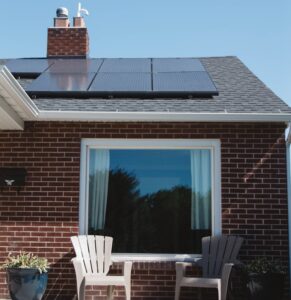Europe can meet energy demand just through renewables, study finds
Europe has enough resources to meet its energy demand solely through renewable sources, a new study has found.
Researchers at the Institute for Advanced Sustainability Studies (IASS) in Potsdam, Germany have found that regions across Europe could likely satisfy their electricity needs by using systems based entirely on solar and wind power.
However, scientists warned that developing these systems would increase pressure on land use around large cities and towns.
‘Our results show how difficult it is, especially in the case of densely populated cities such as Berlin, to meet electricity demand from renewable energy sources,’ lead author Tim Troendle said.
‘But the technology is now sufficiently advanced that even this would be feasible if metropolitan areas were to join forces with their surrounding regions.’
The authors of the study, published in the journal Energy Strategy Reviews, collated data to determine the potential yield of renewable electricity at continental, national, regional and municipal levels, using 2017 electricity consumption data to gauge demand.
The scientists evaluated the potential of solar panels and wind turbines at all four administrative levels, considering individual conditions in each area such as land cover, altitudes and local climate conditions.
The study found that renewable electricity’s potential exceeds demand at continental and national levels, with the total potential at a Europe-wide level 15,000 TWh per year – over four times the current demand, it found.
Even taking into account severe constraints, each individual European country could still potentially generate enough electricity from renewables to be self-sufficient.
However, this would prove trickier at regional and local levels, as while rural regions and some urban areas could meet electricity demand entirely from renewables, large cities like Paris, Dublin and Berlin lack enough potential.
The only ways self-sufficiency would be possible in these cities is if they were to co-operate with surrounding regions to create new metropolitan areas, or even to assign all their undeveloped land to generating renewable electricity – an outcome which may not be desirable, the study concluded.
‘Ultimately, it is a balancing act between self-sufficiency and more intensive local land use on the one hand and the acceptance of imports together with greater cooperation with other municipalities, regions and countries in Europe on the other,’ Troendle said.
The researchers concluded that despite these problems, Europe could theoretically run on 100% renewable energy at all administrative levels, especially if regions and countries could be given the ability to trade electricity.
Recent analysis found that renewables generated more power across the EU than fossil fuels in the first half of the year for the second year in a row.
Photo Credit – Pixabay












